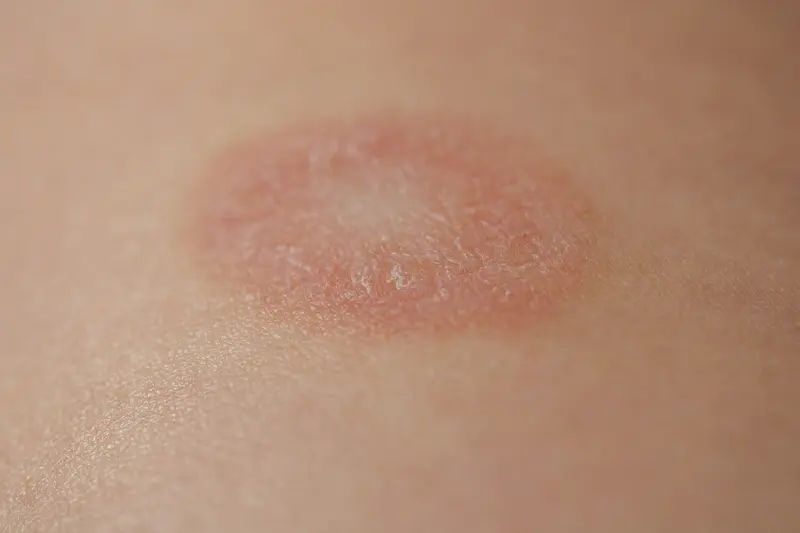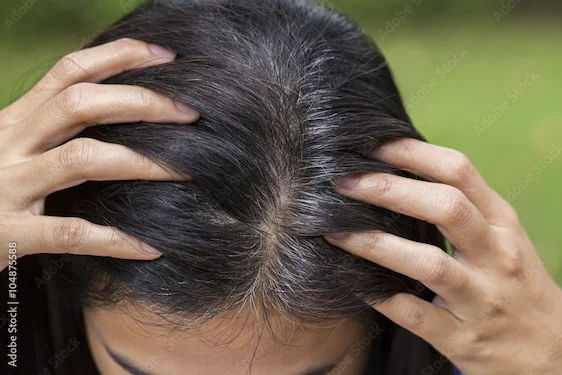- Female
- 18 Years
- 22/01/2025
I'm really worried about my hair. I used to have really thick, jet-black hair ever since I was a kid, but over the last few years, my hair has been falling out so much. Now, it's not only thinning but also turned from black to brown. Plus, there are these red bumps and a lot of dandruff on my scalp. I'm not sure what could be causing all this. Could you help me understand what's happening and what I can do about it?
Answered by 1 Apollo Doctors
Dandruff and Scalp Inflammation_: Fungal infections, allergies, or irritants causing red bumps and flaking. 3. Nutritional Deficiencies: Lack of essential nutrients like iron, zinc, or biotin. 4. Stress and Hormonal Changes: Prolonged stress, thyroid issues, or hormonal fluctuations.
Recommended Steps:
- Consult a Dermatologist: Get a professional diagnosis and guidance.
- Medicated Shampoos: Use anti-dandruff shampoos containing zinc pyrithione, ketoconazole, or coal tar.
- Hair Care: Gentle hair washing, avoiding heat styling, and using a scalp massager.
- Dietary Changes: Ensure adequate nutrition, including foods rich in omega-3 fatty acids, zinc, and biotin.
Potential Treatments:
- Minoxidil: Topical solution to stimulate hair growth.
- Finasteride: Oral medication to slow hair loss (only for male pattern baldness).
- Low-Level Laser Therapy (LLLT) : Non-invasive treatment to promote hair growth.
Dr. Kareemulla Suggests...
Consult a Dermatologist
Answered 04/07/2025
0
0

More Dermatology Health Queries
View allI'm really worried about this situation. I used podowart paint on my warts, and after about four days, the warts did fall off, but now my foreskin is swollen, red, and there's a brown discharge coming from my penis. It's painful, and there's been a bit of bleeding starting too. I saw a doctor who prescribed an antibiotic, but it hasn't helped with the pain or bleeding yet. Plus, I'm dealing with diabetes. Can you help me understand what's going on and what I should do next?
#NAME?
Answered by 1 Apollo Doctors
I've noticed this spot that appeared when I was 8 years old, and it started to spread on my right elbow. It's got me a bit concerned because I'm not sure if it's something I should be worried about or if it needs treatment. What could this be, and should I think about getting it checked out by a professional?
That needs Physical examination,visit Dermatologist for the same
Answered by 1 Apollo Doctors
I've been dealing with this skin issue in my genital area for the past two weeks. There are these red rings that are super irritating and burn a lot. Ive tried using creams like ringguard and beetex, but they didnt help. Any idea what I can do about it? It's starting to really worry me.
It sounds like you may be experiencing a fungal infection, such as a ringworm. I recommend trying an antifungal cream like Clotrimazole (brand name Lotrimin) twice a day for at least 2 weeks. Additionally, you can take an oral antifungal medication like Fluconazole (brand name Diflucan) as prescribed by your doctor. Make sure to keep the affected area clean and dry, and avoid wearing tight clothing. If your symptoms persist, it's important to follow up with a healthcare provider for further evaluation and management.
Answered by 1 Apollo Doctors
Disclaimer: Answers on Apollo 247 are not intended to replace your doctor advice. Always seek help of a professional doctor in case of an medical emergency or ailment.




